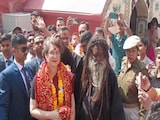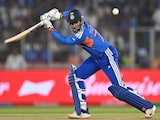The Delhi High Court today issued summons to the British Broadcasting Corporation (BBC) on a defamation case filed by a Gujarat-based NGO named 'Justice on Trial' which claims that its controversial documentary on the 2002 Gujarat riots is against Prime Minister Narendra Modi, and 'cast a slur' on the reputation of India, and that of the judiciary.
"It is contended that the documentary makes defamatory imputation and castes slur on reputation of the country and the judiciary and against the Prime Minister. Issue notice to the respondents...," the court said.
Senior Advocate Harish Salve, appearing for the NGO, contended that the two part documentary has defamed the country, including its judiciary.
Earlier, on May 3, a trial court in Delhi had issued summonses to the BBC, Wikimedia, and Internet Archive on a criminal complaint filed by a BJP leader seeking to restrain them from publishing the documentary, or any other material defamatory to the BJP's ideological mentor RSS and the Vishva Hindu Parishad (VHP). Wikimedia Foundation funds Wikipedia while Internet Archive is a US-based digital library.
The BJP leader's complainant had said the BBC documentary "India: The Modi Question" has defamed organisations like the BJP, RSS, and VHP. The court was told that though the documentary has been banned by the government, a Wikipedia page dedicated to the series provides links to watch it and that the content is still available on Internet Archive.
On January 21, the Centre, using emergency powers under the Information Technology Rules, 2021, directed blocking multiple YouTube videos and Twitter posts sharing links to the controversial documentary. India has called the two-part BBC series a "propaganda piece designed to push a discredited narrative".
The Supreme Court had in February dismissed a request for a complete ban on BBC in India over its documentary, calling it "entirely misconceived". The petitioner had alleged that the BBC was "deliberately maligning India's image", and also asked for an investigation by the National Investigation Agency (NIA) into the "conspiracy" behind the documentary.
"How can a documentary affect the country," the Supreme Court questioned, rejecting a petition by Hindu Sena chief Vishnu Gupta seeking a ban on Britain's national broadcaster operating in India.
"Completely misconceived, how can this be argued also? You want us to put complete censorship? What is this?" a two-judge bench had asked.
The Gujarat Assembly had in March passed a resolution requesting the Centre to take strict action against BBC for tarnishing the image and popularity of PM Modi.
The descriptor of BBC's two-part series calls it a "look at tensions between Indian PM Narendra Modi and India's Muslim minority, investigating claims about his role in the 2002 riots that left over a thousand dead."
A Supreme Court-appointed probe found no evidence of any wrongdoing by PM Modi, who was Chief Minister of Gujarat when the riots broke out in February 2002. The Special Investigation Team, in a report a decade after the riots, exonerated PM Modi, citing "no prosecutable evidence".
In June last year, the Supreme Court backed the clearance to PM Modi and said the case was "devoid of merits" and was filed "obviously, for ulterior design".















